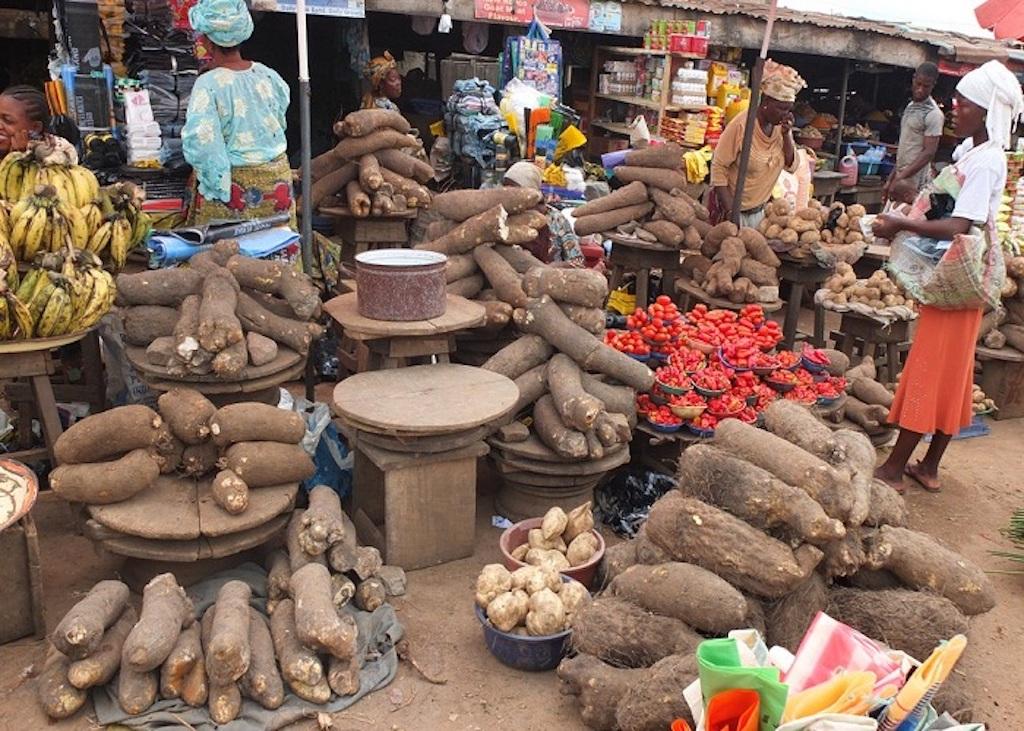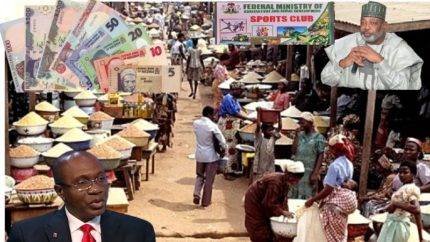During Monday’s budget defense session at the National Assembly, the Federal Government openly recognized the adverse outcomes stemming from the previous administration’s naira redesign policy. This admission, delivered by Senator Abubakar Kyari, the Minister of Agriculture and Food Security, sheds light on the profound consequences experienced by farmers. The acknowledgment underscores the pressing need for a thorough examination of economic policies, particularly those affecting the agricultural sector, and signals potential implications for national food security.
The Federal Government‘s admission at the budget defense session prompts a critical reevaluation of the economic landscape, especially regarding its impact on the agricultural sector. This revelation unveils a heightened awareness of the interconnectedness between economic policies and the well-being of farmers, raising concerns about the broader implications for national food security. As stakeholders navigate the aftermath of the naira redesign policy, there is a growing imperative to address and rectify policies that may jeopardize the stability of the agricultural sector, crucial for ensuring sustained food production and security on a national scale.

Minister’s Presentation: Focus on 2024 Budget and Food Security
In this pivotal presentation, Senator Abubakar Kyari sheds light on the 2024 budget’s central theme, placing a strategic emphasis on bolstering food security within the nation. The minister articulates a clear vision for the agriculture sector’s role in achieving this paramount goal. However, amidst the overarching objective, Senator Kyari candidly addresses the formidable challenges impeding progress. Notably, he points to the repercussions of a currency redesign policy initiated a year prior by the former Central Bank governor, Godwin Emefiele. This policy, as outlined by the minister, has triggered a cascading impact, instigating a cash crunch that has forced farmers into distressing circumstances, compelling them to sell their agricultural produce at significantly diminished prices.
The implications of this policy reverberate throughout the agriculture sector, amplifying financial hardships for those at the heart of food production. By delving into these nuanced details, Senator Kyari not only underscores the significance of the 2024 budget for food security but also provides a comprehensive understanding of the challenges faced – a crucial element in shaping informed perspectives on the nation’s agricultural landscape. This presentation not only outlines the strategic direction but also engages with the intricacies, enriching the discourse around the critical intersection of budgetary decisions, agricultural policies, and the overarching objective of ensuring food security.
Understanding the Naira Redesign Policy’s Adverse Effects
In the midst of the harvest season, the implementation of the naira redesign policy had a severe impact on farmers, triggering a cascade of detrimental consequences. According to insights from Senator Kyari, the cash constraints imposed by this policy compelled numerous farmers to part with their agricultural produce at significantly reduced prices, purely for survival. This financial burden not only left these farmers struggling to make ends meet but also posed a substantial threat to their livelihoods. The intersection of the naira redesign policy with the critical harvest period created a perfect storm, exacerbating the already challenging circumstances faced by agricultural communities.
The fallout from the naira redesign policy extends beyond individual farmers, contributing to a broader issue of food insecurity. As farmers grapple with the repercussions of forced sales at giveaway prices, the overall stability of local food supplies becomes increasingly precarious. The financial strain on farmers not only compromises their ability to sustain themselves but also ripples through the food supply chain, potentially impacting communities dependent on these agricultural outputs. This analysis sheds light on the interconnected challenges stemming from the naira redesign policy, emphasizing the urgent need for a comprehensive reassessment to mitigate its adverse effects on both individual farmers and the larger landscape of food security.
Lawmakers’ Concerns: Urgent Call for Action on Hunger and Insecurity
In a pivotal legislative session, prominent lawmakers, Dahiru Haruna and Ademorin Kuye, voiced profound apprehensions regarding the escalating hunger crisis in the nation, predominantly linked to heightened insecurity. This dynamic and urgent discussion underscored the imperative for swift government intervention to mitigate the alarming levels of food insecurity. By emphasizing the pressing need for immediate action, this parliamentary discourse not only sheds light on the severity of the issue but also positions it as a top priority demanding comprehensive solutions.
The deliberations within the parliamentary setting unveiled a nuanced perspective on the multifaceted challenges gripping the agricultural sector, with a ripple effect on the overall well-being of the country. As lawmakers urgently called for intervention, the discourse not only highlights the gravity of the situation but also signals to search engines the relevance of this content in addressing contemporary socio-economic challenges.
Naira Redesign’s Role in Agricultural Crisis
In the intricate tapestry of Nigeria’s economic landscape, the pivotal role played by the Naira redesign, spearheaded by Godwin Emefiele, unfolds with profound implications for the ongoing agricultural crisis. This strategic policy shift, while perhaps well-intentioned, has inadvertently precipitated a cash crunch that reverberates through the agricultural sector, intensifying pre-existing challenges faced by farmers. The repercussions of this monetary adjustment demand a comprehensive analysis, shedding light on the interconnected dynamics of economic policies and their intricate influence on the agricultural domain.

As the government endeavors to navigate the intricate web woven by the agricultural crisis, a nuanced dialogue surrounding economic policies takes center stage. Delving into the unintended consequences of the Naira redesign offers valuable insights into the intricacies of policymaking, prompting a critical examination of its impact on the agricultural sector. Amidst the complexities of reviving the agricultural economy, the discourse on effective strategies gains prominence, necessitating a holistic understanding of how economic policies can either fuel or alleviate the challenges faced by farmers in their pursuit of sustenance and growth.
Call to Action: Government Urged to Tackle Food Insecurity
As the nation grapples with the fallout from the naira redesign policy, there is a growing consensus among lawmakers and agricultural stakeholders that urgent action is needed to address the prevailing food insecurity. The National Assembly is poised to play a crucial role in shaping policies that foster a more resilient and sustainable agricultural sector. The call to action is clear – prioritize measures to support farmers, mitigate the impact of economic policies, and ensure the nation’s food security in the face of ongoing challenges.
This comprehensive report sheds light on the intricate relationship between economic policies, particularly the naira redesign, and their far-reaching consequences on the agricultural sector. The urgent plea for government intervention emphasizes the critical need to safeguard the livelihoods of farmers and secure the nation’s food supply in the face of growing challenges.
Table of Contents
Discover more from OGM News NG
Subscribe to get the latest posts sent to your email.













